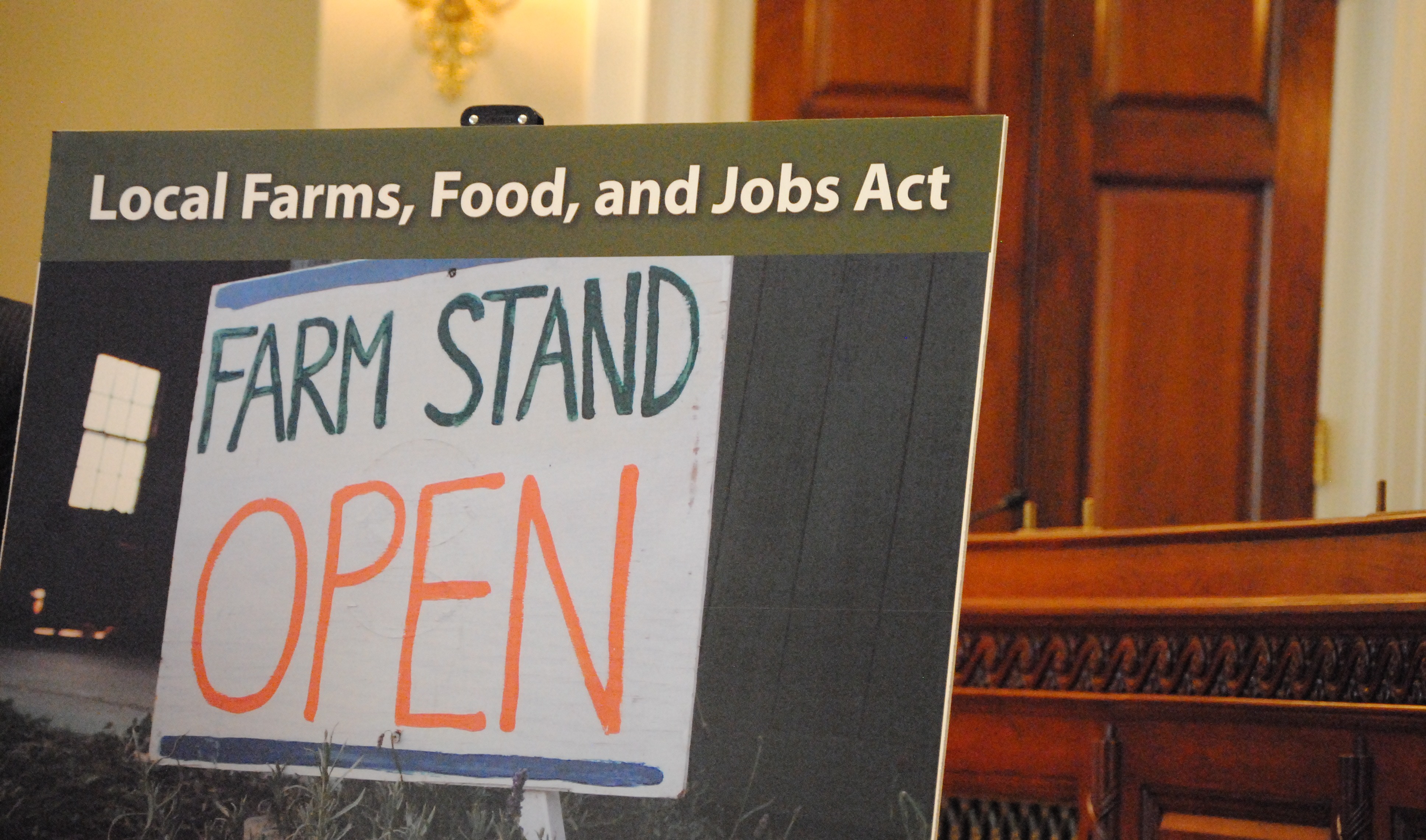“Food – it’s a voting issue.”
The cherry blossoms are in bloom again in Washington, DC, signaling the start of…the Congressional farm bill discussion season! Today, Senator Sherrod Brown (D-OH) and Representative Chellie Pingree (D-ME) introduced the Farms, Food and Jobs Act of 2013 in the Senate and the House.
They were joined at a Capitol press conference by Maine organic farmer Sarah Smith and celebrity chef Tom Colicchio, who announced that his goal is to make food policy an election issue. This is a comprehensive “marker” bill and includes many provisions to support the development of economically vibrant local and regional food systems, including a provision championed by Senator Debbie Stabenow (D-MI) in last year’s Senate Farm Bill providing funding for programs such as Fair Food Network’s Double Up Food Bucks (DUFB) across the country.
Senator Sherrod Brown and organic farmer Sarah Smith
The Local Farms, Food, and Jobs Act (LFFJA) is designed to remove barriers that inhibit the development of local and regional agriculture and ease the growth of sustainable food production for local markets, which now accounts for about $5 billion annually, according to USDA. Regional food systems offer new opportunities for rural and urban farmers as well as the potential to create jobs on farms and in processing, aggregation, skilled food service, and direct retail to consumers.
The collection of provisions in the new Act will: make it easier for participants in the SNAP program and low-income Seniors to shop at farmers’ markets and farmstands; increase the amount of fresh, local food served in school meals; support a national service program providing nutrition and gardening instruction to children in underserved urban and rural communities; and make grants to renovate or build the infrastructure necessary to bring locally-grown healthy foods to schools and institutions that want them.
 The LFFJA includes provisions to make it easier for local farmers to access business loans, buy insurance for their crops, afford organic certification, learn about and implement food safety practices, and invest in equipment to add value to their products and help bring them to market. Finally, the bill includes research provisions to support conventional plant and animal breeding and for the first time measure the economic impact and growth of local and regional food systems. The bills will be referred to the Senate and House Agriculture Committees which may adopt some of the provisions in their final Farm Bill proposals this year.
The LFFJA includes provisions to make it easier for local farmers to access business loans, buy insurance for their crops, afford organic certification, learn about and implement food safety practices, and invest in equipment to add value to their products and help bring them to market. Finally, the bill includes research provisions to support conventional plant and animal breeding and for the first time measure the economic impact and growth of local and regional food systems. The bills will be referred to the Senate and House Agriculture Committees which may adopt some of the provisions in their final Farm Bill proposals this year.
* * *
The Senate Agriculture Committee is expected to debate and pass a Farm Bill this month. Committee Chair Senator Stabenow is committed to cutting $23 billion from program funding over the next ten years (as in last year’s Senate bill, which will be harder to do as across-the-board cuts imposed last month have already taken a bite out of many important USDA programs.
House Agriculture Committee staff members have said that their committee will begin work on the Farm Bill soon after the Senate Committee passes their version. Once both committees have passed bills, it is up to Senate and House leadership to schedule floor time for the full bodies to debate the language. Last year the Senate passed the Farm Bill with strong bipartisan support, but House Speaker John Boehner (R-OH) never provided an opportunity for the House to consider its bill. Both chambers must pass bills, a conference committee must reconcile the differences, and that version must pass both houses by September 30, 2013 or we face the prospect of another extension of the current language. That would be a bad outcome because it continues unpopular commodity support payments for another year and delays the implementation of good programs that connect low-income consumers with healthy food from local farmers.







